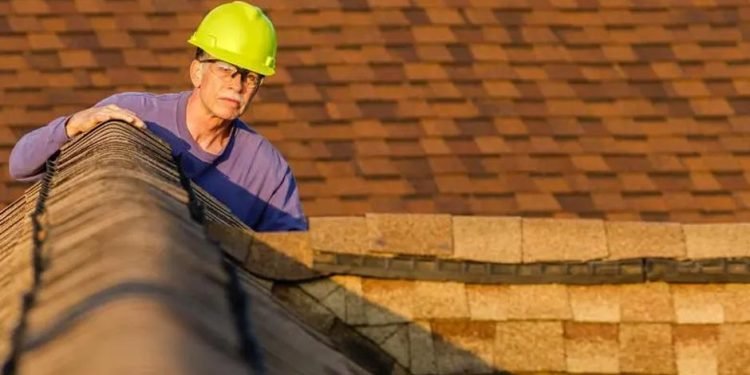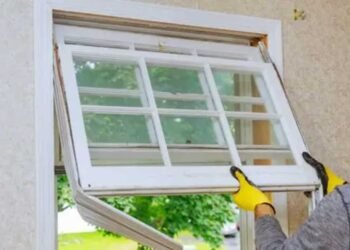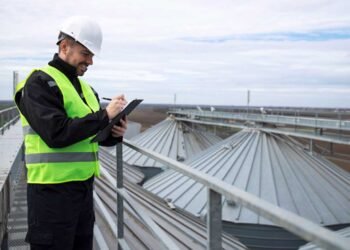As a homeowner, you might feel like your to-do list is never-ending! Whether you want to get your home insulated before the winter season or check the leaky pipes, it can be a lot on your plate. Amidst all the things that need to be done, you would naturally not pay much attention to the roof of your home until it starts leaking or showing major damage. It goes without saying that the roof protects your home and the family inside it from all the outdoor elements and hence you should take care of it. Meanwhile, you can check out Roof Squad to get a fair idea about various roof-related FAQs and aspects like the importance of regular roof inspections and how you can schedule them. In this article, we will talk about how often you should get your roof inspected and discuss why you should schedule regular roof inspections.
How Often Should You Conduct Roof Inspections?
According to The National Roofing Contractors Association, you should check your roof twice a year, preferably during the fall and spring seasons when the weather tends to be milder. It can be easy for the professional roofer to spot any problems. However, if you are unable to conduct roof inspections bi-yearly, you should at least schedule an annual roof inspection before the winter season arrives. This way, your roof will be prepared for the upcoming season change and be equipped to deal with potential weather hazards. According to envypropertymanagement.com, you should check your roof after an extreme weather event like high winds, snow, tornado, hurricane, and hail and look for interior leaks. Since all roofs are built differently, it takes the knowledge of a professional to know what to inspect and how often these inspections should be scheduled.
Reasons to Schedule Regular Roof Inspections:
- Maintain warranty repairs: A leaky roof can have various reasons and some of them might be covered by a manufacturer or contractor warranty. However, be sure to contact a skilled roofer to perform the assessment and determine how and why you should file a warranty claim. There are many roofing companies that will nullify all warranties if you perform any DIY jobs on the roof on your own. Hence you can ask your roofing warrantor to inspect your roof, check for repair or leak that is covered under the warranty, and file the claim on time accordingly.
- Aging and weathering: All kinds of roofs are prone to aging and weathering due to natural circumstances. However, this natural phenomenon can leave small openings on the surface of the roof that can lead to water ingress or infiltration. You can plan the future maintenance schedule according to the condition of these defects so that you can stop additional damage.
- Routine damage maintenance: Regular home maintenance schedules like HVAC upkeep and plumbing issues can have a direct impact on the life of a roof. Hence you should ask a professional to perform repairs like cleaning up the trash on the roof, unclogging the gutters, or sealing mechanical access panels.
- Storm damage maintenance: If you live in an area that is prone to frequent tornadoes or hurricanes or even high winds, your roof might be prone to water infiltration. This is why you should go for regular roof inspections every 3 to 4 months instead of scheduling them once or twice a year. Storm damage may sometimes even cause structural damage by pooling up water on your roof without your knowledge.
- Leak assessments: Roofing leaks followed by stormy rains and high winds are the main triggers for most inspections. Nevertheless, roof leaks can also be caused due to corrosion, mold, rotting wood, or wet insulation that are known to develop over a certain period. You can perform a full leak inspection to prevent future unseen deterioration.
- Maintain proper drainage: A water-logged roof can increase the chances of moisture penetration and leaks. Hence regular roof cleaning can help to keep trash, leaves, debris, and other items from clogging the roof drains and ensure proper drainage to maintain the health of the roof.
Regular roof inspections are very important for maintaining damage and leak-free roofs. These regular inspections will go on to increase the lifespan of your roof and check for various aspects like maintaining warranty repairs, weathering and aging, routine maintenance damage, storm damage, leak assessment, preventing future potential damage, and restoring proper drainage. However, you might be tempted to do your roof inspection on your own. But it is important to remember that certain roofing product replacement warranties will become null and void if you do not get it inspected by a professional. Moreover, you might also put yourself at risk of slip-and-fall accidents and permanently damage your roof. Hence you should always trust a reliable roofing professional to do regular inspections and prevent costly roof repairs in the future.












